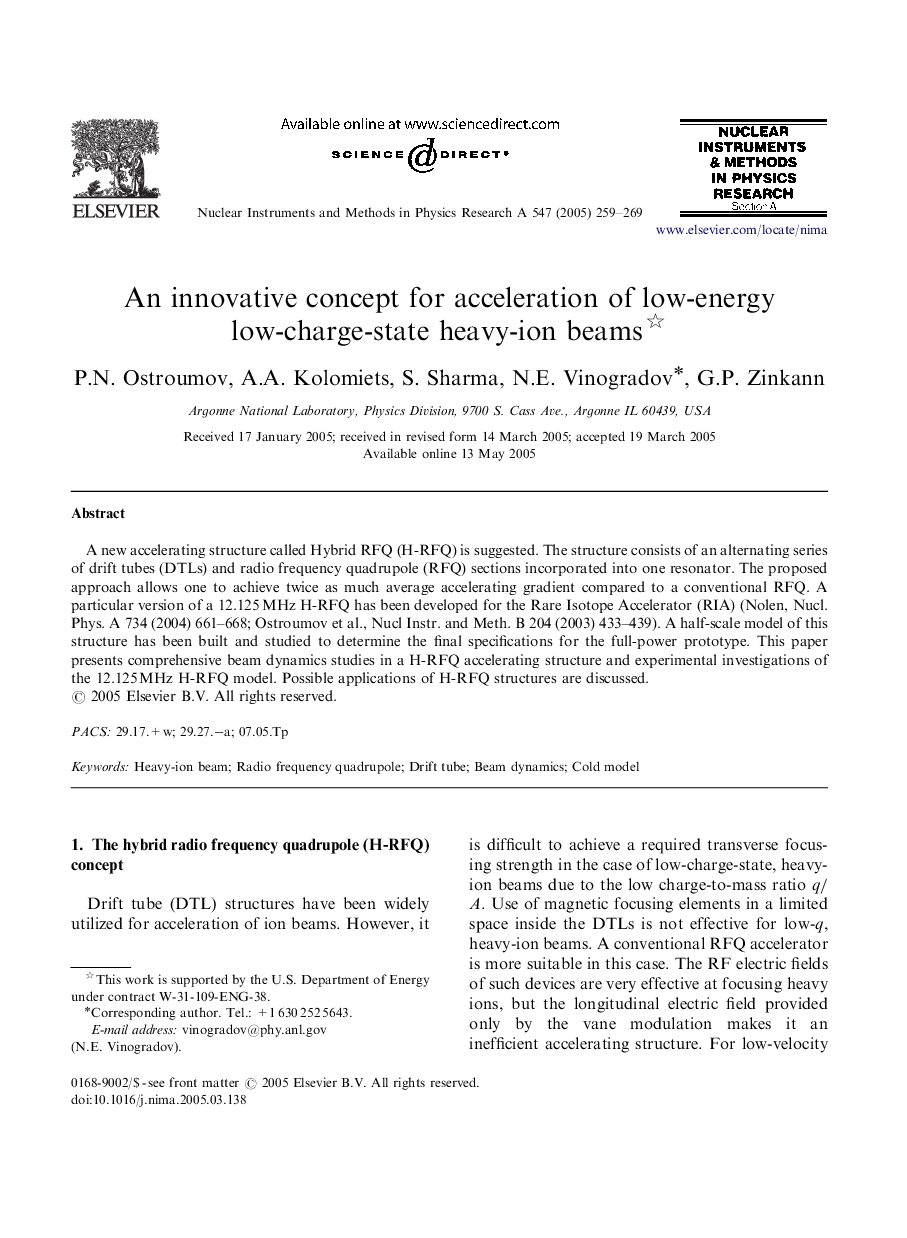| Article ID | Journal | Published Year | Pages | File Type |
|---|---|---|---|---|
| 9845266 | Nuclear Instruments and Methods in Physics Research Section A: Accelerators, Spectrometers, Detectors and Associated Equipment | 2005 | 11 Pages |
Abstract
A new accelerating structure called Hybrid RFQ (H-RFQ) is suggested. The structure consists of an alternating series of drift tubes (DTLs) and radio frequency quadrupole (RFQ) sections incorporated into one resonator. The proposed approach allows one to achieve twice as much average accelerating gradient compared to a conventional RFQ. A particular version of a 12.125Â MHz H-RFQ has been developed for the Rare Isotope Accelerator (RIA) (Nolen, Nucl. Phys. A 734 (2004) 661-668; Ostroumov et al., Nucl Instr. and Meth. B 204 (2003) 433-439). A half-scale model of this structure has been built and studied to determine the final specifications for the full-power prototype. This paper presents comprehensive beam dynamics studies in a H-RFQ accelerating structure and experimental investigations of the 12.125Â MHz H-RFQ model. Possible applications of H-RFQ structures are discussed.
Keywords
Related Topics
Physical Sciences and Engineering
Physics and Astronomy
Instrumentation
Authors
P.N. Ostroumov, A.A. Kolomiets, S. Sharma, N.E. Vinogradov, G.P. Zinkann,
